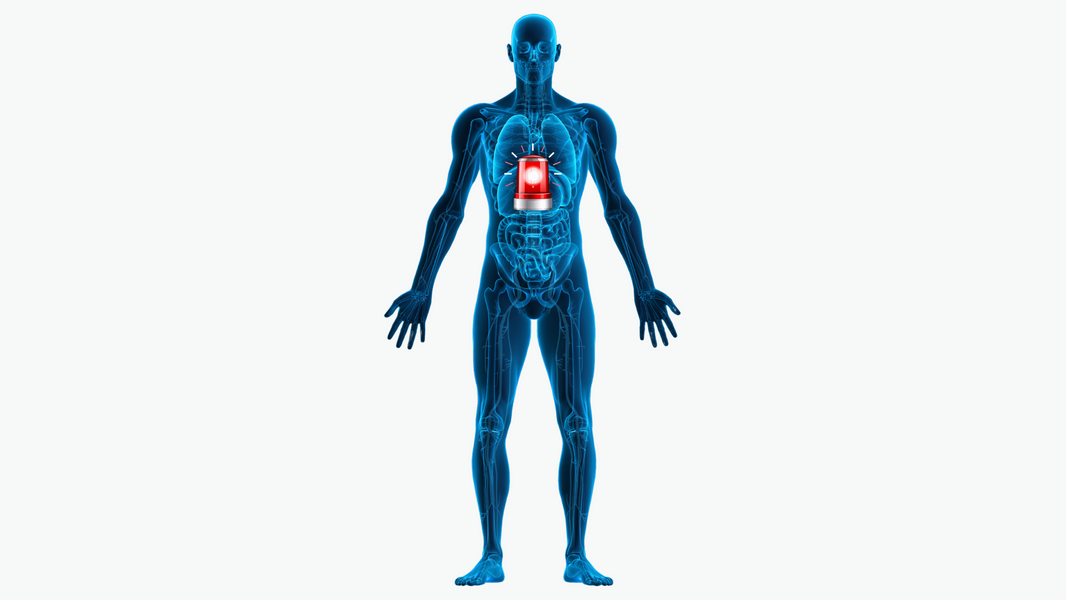Polycystic Ovarian Syndrome (PCOS) is a disorder that disrupts menstruation and can cause infertility. The real challenge of this condition is that we don’t know what causes it or the best way to treat it. Many physicians don’t even know where to start!
But PCOS isn’t rare! Between 5 and 10% of women have PCOS, so Betr thinks it’s time we get a handle on this common condition.
We’ll try to explore the following topics:
- What is PCOS?
- The inflammatory connection between PCOS and our microbiome
- How gut bacteria impacts hormone changes in PCOS
- PCOS and Mental health
- How Betr helps reverse PCOS
So if you or someone you know suffers from PCOS, or you want to get a handle on how Betr’s gut-healthy approach can address this and other common health issues- keep reading!
What Is PCOS?
Polycystic Ovarian Syndrome (PCOS) is a hormone disorder that disrupts regular menstruation and causes irregular hair growth, thinning hair, obesity, and skin darkening. For many women, one of the most devastating effects of PCOS is that it interferes with pregnancy and fertility.
When it comes to PCOS, pain is considered a controversial symptom. Medically, PCOS is not a direct cause of more intense menstrual pain. But try telling that to someone diagnosed with PCOS who experiences irregular, uncomfortable periods.
Whether it’s a direct cause of PCOS or associated with irregular and unpredictable menstrual cycles, many women with PCOS report more painful periods.
No one knows the exact cause of PCOS. However, there are a few conditions that are reliably associated with PCOS. These include chronic inflammation, an imbalance of androgens and insulin, and obesity.
Takeaway
One of the primary symptoms of PCOS is irregular, unpredictable periods, but it can also cause infertility. PCOS is often paired with chronic inflammation, secondary hormonal imbalances, and obesity.
PCOS and your Microbiome: The Inflammatory Connection
The thing about exploring PCOS and its causes is that there is a lot of “chicken vs. the egg” debate. As we said above, the cause of PCOS isn’t known, but there are plenty of connections between PCOS, gut health, and chronic inflammation.
One theory for the cause of PCOS involves the disruption of the gut microbiome. According to this theory, the bacterial population of our gut shifts toward unhealthy species that cause inflammation in our intestinal lining. This inflammation causes an increase in intestinal permeability.
To understand increased intestinal permeability, picture your gut lining as a brick wall. When unhealthy gut bacteria take over, they “chip away” at the mortar between the bricks. When this mortar is damaged, there are holes in the wall.
Another name for increased intestinal permeability is “Leaky Gut Syndrome.” Here’s the problem with Leaky Gut syndrome: the “holes” in our gut wall allow inflammatory substances into and out of the gut. You can read more about it in Betr’s Blog post: Leaky Gut Syndrome: Quack or Fact?
When inflammatory substances travel, it causes inflammation throughout the body. This inflammation may worsen PCOS and disrupt other healthy functions!
Takeaway
Unhealthy shifts in the gut microbiome can lead to increased intestinal permeability and widespread, chronic inflammation. This inflammation can contribute to worsening PCOS symptoms.
Gut Bacteria, PCOS, and Hormone changes
An unhealthy gut microbiome doesn’t just cause inflammation, though. Research indicates that it’s also related to hormonal changes that can impact PCOS more directly. Scientists studying women with PCOS found that their gut health affects hormonal changes.
Decreases in gut microbiome were associated with increased insulin resistance and androgen levels.
Androgens are “male hormones.” While men and women always have a balance of male and female hormones, increased androgens cause some of the primary sex-related symptoms of PCOS.
Researchers tested this relationship by transplanting microbiomes of PCOS patients with lower bacterial diversity into mice. The results were that mice with decreased bacterial diversity and PCOS had fewer babies, which is consistent with increased androgen levels.
These mice also exhibited other hormonal effects, like increased metabolic issues.
These increased metabolic issues include insulin resistance, obesity, and the development of diabetes. Evidence shows that women with PCOS and lower levels of bacterial diversity are more likely to experience all these metabolic disturbances.
Our blog post, Gut Health and Diabetes: Beneficial Bacteria’s Sweet Role, details the importance of a healthy microbiome to the producing and balancing hormones that support healthy blood sugar, weight, and even mood and mental health!
Takeaway
Evidence shows that the decreased diversity of gut bacteria is associated with increased hormone-related PCOS symptoms, including androgen imbalance, insulin resistance, and obesity.
PCOS and the Gut-Brain Axis?
Here’s another fascinating connection between the gut microbiome and PCOS, and one that still needs more research.
In Gut Health and Anxiety: The Truth Behind “Gut Feelings,” we cover the relationship between gut, mood, and mental health. This relates to PCOS because there is an increased occurrence of certain psychological disorders with PCOS.
There’s likely a combination of reasons for this. First, PCOS can be a stressful condition on its own. Additionally, there’s a known relationship between the gut and the brain knowns as the gut-brain axis.
Like androgens and insulin, gut bacteria play a significant role in balancing mood-regulating hormones. 95% of serotonin, one of the primary hormones responsible for brain health, is produced in our gut!
Evidence supports this theory of the relationship between mental health, gut health, and PCOS. Animal studies show that dopamine, norepinephrine, and serotonin levels, all essential hormones for mental health, are reduced in mice with PCOS and lower gut microbiome diversity.
Takeaway
There’s more evidence for the relationship between gut health, PCOS, and mental health, and it may be related to the gut-brain axis.
A Betr Approach to Gut Health and PCOS
At first glance, healthy eating might seem like a lame answer to PCOS problems. But we’ve seen Betr members regulate their menstrual cycle, overcome painful periods, and even defeat years of infertility and grow their families!
How is this possible? Because Betr addresses the primary health challenges presented by PCOS.
By eating delicious gut-healthy, anti-inflammatory foods, our members restore their gut microbiome, which sets the stage for reduced inflammation and long-term healing. As the gut heals, those “holes” we talked about in your gut wall close up, reducing inflammation in the intestines and the rest of the body.
And, as your gut bacteria feed on healthy fiber, it produces more hormone-balancing, anti-inflammatory substances (called short-chain fatty acids). Short-chain fatty acids are the building blocks of beneficial hormones. That’s why a healthier gut leads to reduced insulin resistance, androgen imbalance, and improved mood-balancing hormone levels.
In addition, this Betr protocol will help to restore your body’s natural balance and health. You’ll experience better sleep, more energy, and decreased inflammation. These effects allow your body to naturally regulate and reverse years of inflammatory damage, often in just a few weeks.
If you suffer from polycystic ovarian syndrome, the Betr protocol will help you address inflammation, hormone imbalance, and obesity. While we may not know the cause of PCOS, improving these related conditions contributes to an overall improvement in its impact!
Takeaway
The Betr protocol addresses and reverses conditions contributing to PCOS’s impact on your life. Reducing inflammation, gut healing, and weight loss using delicious, whole foods can help fight the most significant effects of PCOS!
Healing Your Gut CAN Help Fight PCOS
The relationship between PCOS and gut health is complex. More research must be done to nail down the absolute best approach to reversing the effects of this challenging condition. To wrap up our discussion, remember:
- One of the primary symptoms of PCOS is irregular, unpredictable periods, but it can also cause infertility. PCOS is often paired with chronic inflammation, secondary hormonal imbalances, and obesity.
- Unhealthy shifts in the gut microbiome can lead to increased intestinal permeability and widespread, chronic inflammation. This inflammation can contribute to worsening PCOS symptoms.
- Evidence shows that the decreased diversity of gut bacteria is associated with increased hormone-related PCOS symptoms, including androgen imbalance, insulin resistance, and obesity.
- There’s more evidence for the relationship between gut health, PCOS, and mental health, which may be related to the gut-brain axis.
- The Betr protocol addresses and reverses conditions contributing to PCOS’s impact on your life. Reducing inflammation, gut healing, and weight loss using delicious, whole foods can help fight the most significant effects of PCOS!
So, if you’re looking for a delicious and straightforward approach to healing your PCOS and living a Betr life, join Betr now!
The information provided here is for general knowledge and educational purposes only. It should never replace personalized medical guidance from your physician or another qualified healthcare provider. We do not offer medical advice.






